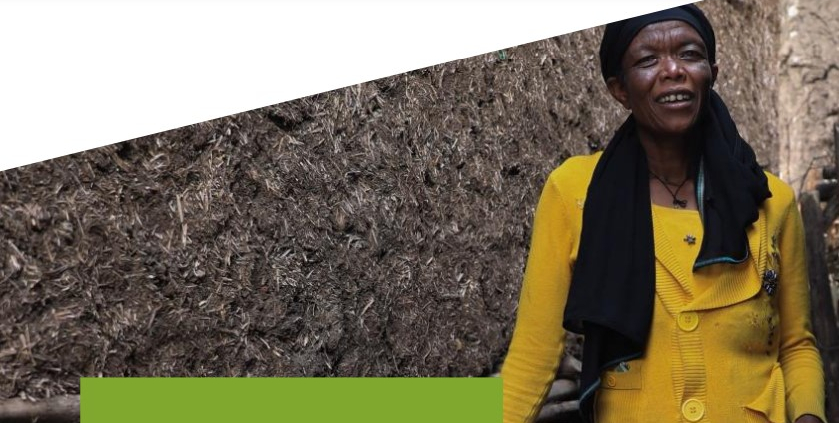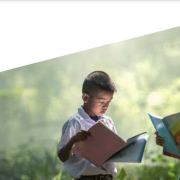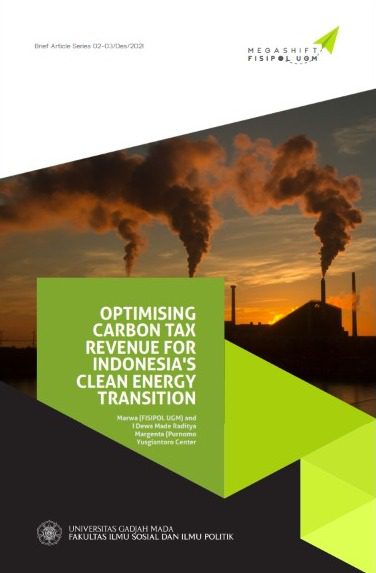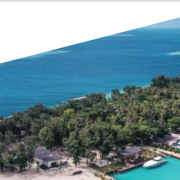Contending Masculinity in Ethiopia’s Water Diplomacy
Women’s participation in water dispute negotiation and decision-making is crucial to achieving equal, sustainable, and effective policy implementations. This article addresses the involvement of women in Ethiopia’s water diplomacy against the background of shared water resource conflicts among Nile Basin countries. The tension is initially triggered as Ethiopia faces a serious humanitarian crisis of successive droughts, resulting from climate change (Corral, 2022). Dealing with the crisis, the Ethiopian Government has started building the Grand Ethiopia Renaissance Dam (GERD) on the Blue Nile in the state of Benishqul-Gumuz near the Ethiopian-Sudanese border is expected to become the largest hydroelectric dam in the world (Zreik, 2021). The infrastructural response by the Ethiopian Government consequently created high tensions between Ethiopia and Egypt (Kwesi Kyirewiah, 2022). It is feared that the new dam will disrupt the flow and quality of the Nile water on the northern side, which is used mainly for Egypt’s agriculture (Al Jazeera, 2020). While the impacts of the water crisis vary across class, gender and identities, water diplomacy and water resource management are still deemed to only be appropriate for men.
Water diplomacy is a term used to address the political processes and practices of preventing, mitigating, and resolving disputes over transboundary water resources and developing joint water governance arrangements by applying foreign policy means (Sehring, ter Horst, et al., 2022). This definition allows a more comprehensive view of water diplomacy, as it is not only about achieving a political agenda for transboundary cooperation but also its implementation by empowering every level of society through skills transfer, mentoring, and training to eliminate disputes (The Water Diplomat, 2022). Ethiopia’s water resources management and transboundary water diplomacy often correlate with its masculine nature, with traditionally over-represented men in the professions associated with water management and water diplomacy – such as engineering, hydrology, irrigation, and diplomats involved in the settlement of transboundary water issues. In addition, there is an assumption that water management functions will only be performed by men, thus normalizing the situation, and consequently producing laws, policies and strategies that are mostly silent on the promotion and resolution of gender issues (Zwarteveen, 2008). Most of the approach used in water diplomacy is also centered on dominating and controlling the natural environment, an approach that is intimately associated with a masculinized discourse (Earle & Bazilli, 2013). The masculine nature of water diplomacy is based on cultural beliefs that women are only held accountable for household-level water management (Nile Basin Initiative, 2012). Ethiopian women are socially constructed to hold responsibilities for water collection and the sustainability of the household. This constructed identity is based on the internalized stereotype that men are the breadwinners and naturally born to be leaders, while women are less capable of doing so (Earle & Bazilli, 2013). The perceived masculinity of water diplomacy hinders the achievement of these agendas.
The masculine nature of water diplomacy is easiest to see through the disparity of representation. Women are often under-represented in political decision-making at the transboundary level, undermining progress toward cooperative and sustainable management of shared waters. Strong patriarchal values validate men as key decision-makers and dismiss women’s roles in water-related issues. In five main GERD negotiations carried out since 2012, only two women out of 25 Ethiopian delegates were assigned (ter Horst et al., 2022). Additionally, women who were allowed to be involved in the discussion and negotiation process also faced great resistance from male participants. The initiatives brought up by women will be countered and devalued by men, resulting in a prolonged and ineffective negotiation process (ter Horst et al., 2022). During negotiations on transboundary waters, senior technical staff from the water management departments, constituted mostly men, would try to re-explain technical points as if it was not properly understood by the women who delivered them (Earle & Bazilli, 2013). Thus, to perform well in water diplomacy, women need to do “gender work” to prove that it is possible to be both feminine and a good diplomat or water resources manager by ensuring the female team members are trained both in technical aspects and in negotiation skills to convince the men that they have sufficient knowledge (Sehring, ter Horst, et al., 2022).
The gender disparity among water professionals is also largely due to the low percentage of Ethiopian women enrolling in engineering school and the job opportunities as water engineers that favor men over women (Beyene, 2015). Water is a strategic resource essential to national and regional security. Regarding this crucial matter, a man is perceived most likely to be an effective and rational leader than a woman (Gebreegzabher, 2018). Equally important, women’s responsibility to fetch water consequently led to the lack of time to pursue proper education and partake in the public arena, including being informed decision-makers (Beyene, 2015). Meanwhile, Ethiopian women who have become water professionals also face difficulties, such as a lack of support from peers and a lack of opportunities to reach the managerial level, with fewer than 20% succeeding (Sehring, Horst, et al., 2022). For this, the underrepresentation of women in water-related negotiation and decision-making illustrates hegemonic masculinity rooted deeply in Ethiopian society.
Moreover, masculine tendency around water-related policies results in inadequate protection for women. In the voyage of collecting water, women are often met with verbal and physical fracas on the water use and amount, well access, cleanliness, overcrowding, and external disputes (Offutt, 2022). Women are also vulnerable to domestic and sexual abuse, as the violent and destructive behaviors of men facing water insecurity increase. Around 60% of Ethiopian women experienced domestic violence, and only a few policies were made regarding this matter (Beyene, 2015). For instance a School-Based Responses to Gender-Based Violence and One Water, Sanitation, and Hygiene (WASH) National Program (Parkes et al., 2017). These policies are mostly ratified international instruments, but implemented with poor socialization of their rights, proper advocacy and protection legal protocols of the victims, and additionally inadequate law enforcements on the perpetrators as most of the cases are settled with cultural law (Asebe Awol, 2021; Assefa et al., 2021; Marew & Birhanu, 2021). In water crisis-induced internal and cross-border migrations, women are often deprived of the opportunities to migrate. Limited gendered migration policies fail to protect women who face violence by other men while their husbands migrate (Färber et al., 2022).
Understanding transboundary conflict and cooperation between states requires looking beyond the interests of state in hydro-politics to grasp the complexities of the distribution of water, voice, and knowledge among different actors at different scales. The complex setting brings out products of centuries-old socio-culture within the society of Ethiopia, one of which is deeply rooted in gender inequality demonstrated in water diplomacy. Gender in this context is beyond the biological division of male and female but more about power relations that shape different social and political experiences within a gendered society. Thus, engendering water diplomacy needs to acknowledge that women experience water-related crises differently and emphasizes a change in perspective (Bisht, 2022). The formulation of gendered water-related policies can increase women’s health, promoting economic growth and development (Grant, 2017). However, increasing women’s representation does not validate Ethiopia’s water diplomacy as another “Add Women and Stir” phenomenon. Women must be included as equally capable policymakers whose voices are valuable, representing half the population.
Contending masculinity in Ethiopia’s water diplomacy is beyond counting the number of women involved at the negotiation table. Representation of women in decision-making structures needs to be accompanied by inclusive policies, strategies, and work plans, followed by reformed social norms that reflect a deeper understanding of the importance of gender equality, especially around the climate induced-water crisis.
References
Al Jazeera. (2020). Could mega-dams kill the mighty River Nile? (An interactive report) [Al Jazeera]. https://interactive.aljazeera.com/aje/2020/saving-the-nile/index.html
Asebe Awol, A. (2021). Assessing the Prevalence, Causes, and Consequences of Domestic Violence against Women: The Case of Helaba Zone, Southern Ethiopia. International Journal of Women’s Health and Wellness, 7(2). https://doi.org/10.23937/2474-1353/1510131
Assefa, G. M., Sherif, S., Sluijs, J., Kuijpers, M., Chaka, T., Solomon, A., Hailu, Y., & Muluneh, M. D. (2021). Gender Equality and Social Inclusion in Relation to Water, Sanitation and Hygiene in the Oromia Region of Ethiopia. International Journal of Environmental Research and Public Health, 18(8), 4281. https://doi.org/10.3390/ijerph18084281
Beyene, H. (2015). FINAL REPORT NATIONAL ASSESSMENT: ETHIOPIA GENDER EQUALITY AND THE KNOWLEDGE SOCIETY. 104.
Bisht, M. (2022). Thinking through Networks Towards a Feminist Water Diplomacy. In Gender Dynamics in Transboundary Water Governance: Feminist Perspectives on Water Conflict and Cooperation (1st ed., pp. 73–87). Routledge. https://www.taylorfrancis.com/books/9781003198918
Corral, V. P. and M. de. (2022, November 15). Tackling fragility and promoting integration in the Horn of Africa through ‘development diplomacy.’ Brookings. https://www.brookings.edu/blog/africa-in-focus/2022/11/15/tackling-fragility-and-promoting-integration-in-the-horn-of-africa-through-development-diplomacy/
Earle, A., & Bazilli, S. (2013). A Gendered Critique of Transboundary Water Management. Feminist Review, 103(1), 99–119. https://doi.org/10.1057/fr.2012.24
Färber, L., Nagabhatla, N., & Ruyssen, I. (2022). Assessment of Water-Migration-Gender Interconnections in Ethiopia. Frontiers in Human Dynamics, 4, 858229. https://doi.org/10.3389/fhumd.2022.858229
Gebreegzabher, A. (2018). Women’s Participation in Water Resource Management, in Case of Enderta District, Tigray Region, Ethiopia. Journal of Water Resource and Protection, 10(11), 1047–1060. https://doi.org/10.4236/jwarp.2018.1011061
Grant, M. (2017). Gender Equality and Inclusion in Water Management. Global Water Partnership, 24.
Kwesi Kyirewiah, F. (2022). Water Diplomacy: And the Share of the Nile River between Egypt, Ethiopia and Sudan. Mediterranean Journal of Social Sciences, 13(1), 32. https://doi.org/10.36941/mjss-2022-0004
Marew, A. S., & Birhanu, A. (2021). The Ethiopian Legal Frameworks for the Protection of Women and Girls from Gender-Based Violence. PanAfrican Journal of Governance and Development (PJGD), 2(1), 82–102. https://doi.org/10.46404/panjogov.v2i1.2914
Nile Basin Initiative. (2012). NBI Gender Mainstreaming Policy and Strategy. Nile Basin Initiative.
Offutt, A. (2022). A Gendered Perspective on the Multiple Scales of Water Conflict. In Gender Dynamics in Transboundary Water Governance: Feminist Perspectives on Water Conflict and Cooperation (1st ed., pp. 58–72). Routledge. https://doi.org/10.4324/9781003198918
Parkes, J., Heslop, J., Ross, F. J., Westerveld, R., & Unterhalter, E. (2017). Addressing SRGBV in Ethiopia: A scoping study of policy and practice to reduce gender-based violence in and around schools. UNICEF. https://discovery.ucl.ac.uk/id/eprint/10044584/1/Addressing%20SRGBV%20in%20Ethiopia_A%20scoping%20study%20of%20policy%20and%20practice%20to%20reduce%20gender-based%20violence%20in%20and%20around%20schools_2017.pdf
Sehring, J., Horst, R., & Zwarteveen, M. (2022). (En-)gendering Water Diplomacy. In Gender Dynamics in Transboundary Water Governance: Feminist Perspectives on Water Conflict and Cooperation (1st ed., pp. 1–20). Routledge. https://doi.org/10.4324/9781003198918-1
Sehring, J., ter Horst, R., & Zwarteveen, M. (2022). Gender Dynamics in Transboundary Water Governance: Feminist Perspectives on Water Conflict and Cooperation (1st ed.). Routledge. https://doi.org/10.4324/9781003198918
ter Horst, R., Amakali, M., Barua, A., Gefoun, N., Jekel, H., & Villar, P. C. (2022). Negotiating Water: Lived Experiences of Female Practitioners. In Gender Dynamics in Transboundary Water Governance: Feminist Perspectives on Water Conflict and Cooperation (1st ed., pp. 179–192). Routledge. https://www.taylorfrancis.com/books/9781003198918
The Water Diplomat. (2022, September 2). Women in Water Diplomacy Network launches new strategy. The Water Diplomat. https://www.waterdiplomat.org/story/2022/09/women-water-diplomacy-network-launches-new-strategy
Zreik, M. (2021, December 21). Ethiopia: Water Diplomacy To Deal With Renaissance Dam Crisis – Analysis. Eurasia Review. https://www.eurasiareview.com/22122021-ethiopia-water-diplomacy-to-deal-with-renaissance-dam-crisis-analysis/
Zwarteveen, M. (2008). Men, Masculinities and Water Powers in Irrigation. 1(1), 20.
.











Leave a Reply
Want to join the discussion?Feel free to contribute!